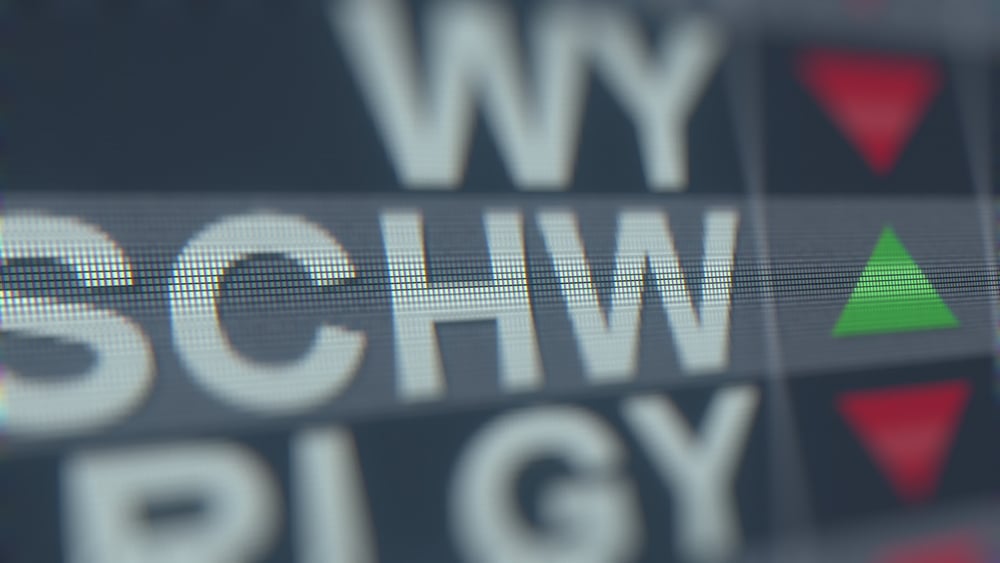
When it comes to market analysis, one of the first points that the field tends to watch for is merger and acquisition (M&A) activity. M&A activity represents a fundamental shake-up in the overall market, as firms acquire competitors and remove them from play, or simply give themselves a competitive edge in the market by gaining access to new tools, technologies, and markets to offer services and sell products.
A recent report suggests that brokerage leader Charles Schwab NYSE: SCHW may be planning to make its own splash in the M&A front, thanks to a possible plan to purchase TD Ameritrade NASDAQ: AMTD.
The Formation of a New Market Juggernaut
The two companies, at last report, are currently in talks to make such a deal happen, and this is in a market that's seen a panoply of changes lately. If Schwab were to ultimately buy TD Ameritrade, reports note, the combined firm would represent a significant new power in the field, with a combined total of over $5 trillion in assets.
That's actually just an incremental increase for Schwab, which already counted about $3.8 trillion to its credit already. TD Ameritrade, meanwhile, would bring in roughly $1.3 trillion to contribute.
Early reports from the Financial Times suggest that Schwab is poised to offer $25 billion for TD Ameritrade, which represents about a 10 percent premium for the broker previously valued at $22.4 billion according to a MarketWatch study.
An Interesting Time for Merger & Acquisition in the Financial Market
The report was sufficient to send share prices up substantially, with Schwab shares up 11% over the previous day's close, and TD Ameritrade's up 25%. While they've given back some of those gains as of this writing, both companies are well off yesterday's closing figures. The market is clearly pleased with this notion of a major new power in the wealth management sector.
The move comes at a time of great upheaval in the field. The recent move by nearly everybody to offer commission-free trading has been heralded by consumers and small-scale stock traders, but it's left the brokerages themselves with a problem. Namely, how to produce a profit when you've taken a formerly for-pay service to for-free. Reports from CNBC suggest that Schwab brought in between $90 million and $100 million quarterly in revenue from commissions, so it's little wonder that investors were pressuring Schwab to find a new cash cow, and quickly.
While it may sound like economic suicide to start doing for free what you once did for pay, the rest of the market had very little choice. Calls for such a move have been echoing through the market since 2014, by some reports, when the startup Robinhood Markets Inc. started offering free stock trades. Rather than risk losing entire markets to the upstart, the rest of the market had little choice but to price-match and follow suit.
Further, the report comes as TD Ameritrade's current CEO, Tim Hockey, is poised to end his tenure as CEO in February 2020. This could effectively be one of Hockey's last moves with TD Ameritrade.
A Method to the Madness?
Free trading might sound like a disaster, but it's drawing in potential investors. Schwab itself actually noted that, just in October, the company added 142,000 new traders to the rolls, which is up nearly a third, 31%, from just September. It's also up 7% from October 2018, which makes it clear that free trades bring investors to the yard. This has also led to a substantial increase in the amount of client assets, which recently hit a record and gave Schwab the aforementioned $3.8 trillion in assets.
The strategy of offering certain services at no charge or at wildly reduced rates is sometimes called a “loss leader.” Most of the entire Black Friday concept is built around loss leaders, and has done wonders in getting consumers to pick up other products “since they're there anyway”. Seeing brokerages take up such a banner is unexpected, but it's a plan with a solid foundation. If Schwab acquires TD Ameritrade, it may ultimately demonstrate the power of the loss leader.
Before you make your next trade, you'll want to hear this.
MarketBeat keeps track of Wall Street's top-rated and best performing research analysts and the stocks they recommend to their clients on a daily basis.
Our team has identified the five stocks that top analysts are quietly whispering to their clients to buy now before the broader market catches on... and none of the big name stocks were on the list.
They believe these five stocks are the five best companies for investors to buy now...
See The Five Stocks Here
Wondering where to start (or end) with AI stocks? These 10 simple stocks can help investors build long-term wealth as artificial intelligence continues to grow into the future.
Get This Free Report
Like this article? Share it with a colleague.
Link copied to clipboard.